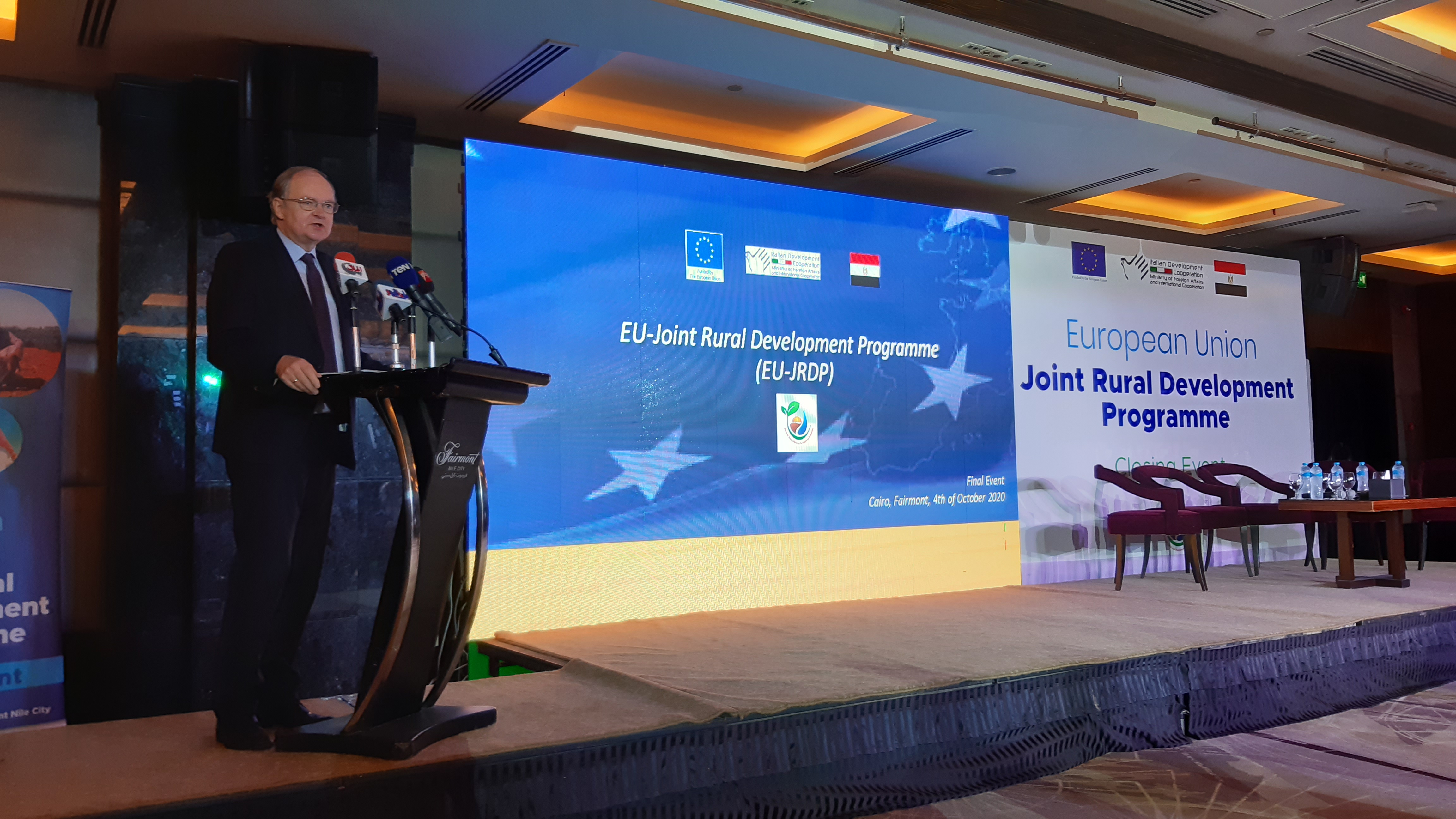
EU and Italy take stock of experience gained through EU Joint Rural Development Programme
The European Union and Italian Cooperation work to strengthen rural development in Egypt through the European Union - Joint Rural Development Programme (EU-JRDP).
The EU-JRDP is an “area-based” initiative that started in three governorates (2014-2020), such as Matrouh, Minya, and Fayoum was implemented by the Italian Ministry of Foreign Affairs and Cooperation and Development, through the Italian Embassy in Egypt with the technical assistance of the Italian Agency for Cooperation (AICS), allocating (€ 11.0 M) to the project. The European Union (EU) has allocated a grant of (€ 21.9 M) for this project.
“Over the years, the EU has become an increasingly important partner in this sector, with a total contribution reaching over EUR 200 million for past and current programs.
More than twenty years have passed since the first agricultural project supported by the EU was implemented,” said Christian Berger, Ambassador of the EU to Egypt. “The EU-JRDP is part of the larger support that the EU is providing to the rural areas or for the development of agriculture in the country,” he added.
“The EU-JRPD program aims to strengthen the capacities of rural associations; both farmers and non-farmers in terms of sustainable management of local resources and to explore innovative solutions for income generation”, the Ambassador of Italy, GiampaoloCantini, said in his intervention.
The EU-JRDP seeks to improve the quality of life of people living in rural areas”, through “increasing sustainable agricultural production by managing water and natural resources more effectively and efficiently, and improving rural livelihoods by promoting income-generating activities.
Throughout the implementation period, EU-JRDP acquired a vast range of experience shared during the final event currently taking place in Cairo, with all concerned stakeholders. The EU-JRPD was initially planned to be a five-year program and later extended to six, has been implemented through 11 Calls for Proposals with Egyptian and international organizations in addtion to 14 Calls for Tenders, 4 of which directly related to the rehabilitation of irrigation infrastructure in Minya and Fayoum.
The main Egyptian authorities in the project are the Ministry of International Cooperation as National Coordinator, the Ministry of Agriculture and Land Reclamation as Lead Ministry, the Ministry of Water Resources and Irrigation, the Ministry of Local Development.
In Matrouh Governorate alone, the EU funded, in connection with EU-JRDP, the “Demining Component” implemented by UNDP.
The EU-JRDP aim is to contribute to the development of best practice-based knowledge during the preparation of future projects in rural development. In the governorate of Matrouh, the project developed best water harvesting practices in the drylands of the North West Coastal Zone of Egypt. In Matrouh, the project also increased the resilience capacity of pastoralists and made the promotion of Geographical Indications (GIs). In Minya and Fayoum, the project increased the land and water productivity through the rehabilitation of the irrigation network and waste management practices.
The project demonstrated the importance of the participatory approach when it comes to irrigation development and waste management in old lands. In these two governorates, the project demonstrated also the value addition of introducing ad-hoc well-adapted new technologies for high-yielding horticultural crops for marketing purposes. Eventually, the project as a whole, demonstrated the importance of taking into consideration gender aspects, to achieve sustainable and impactful results when it comes to rural development.
Based on EU-JRDP experience, such practices can be in the future adapted and improved to facilitate the upscaling and adoption process by final beneficiaries leading to a greater impact and better sustainability.

Comments
Leave a Comment